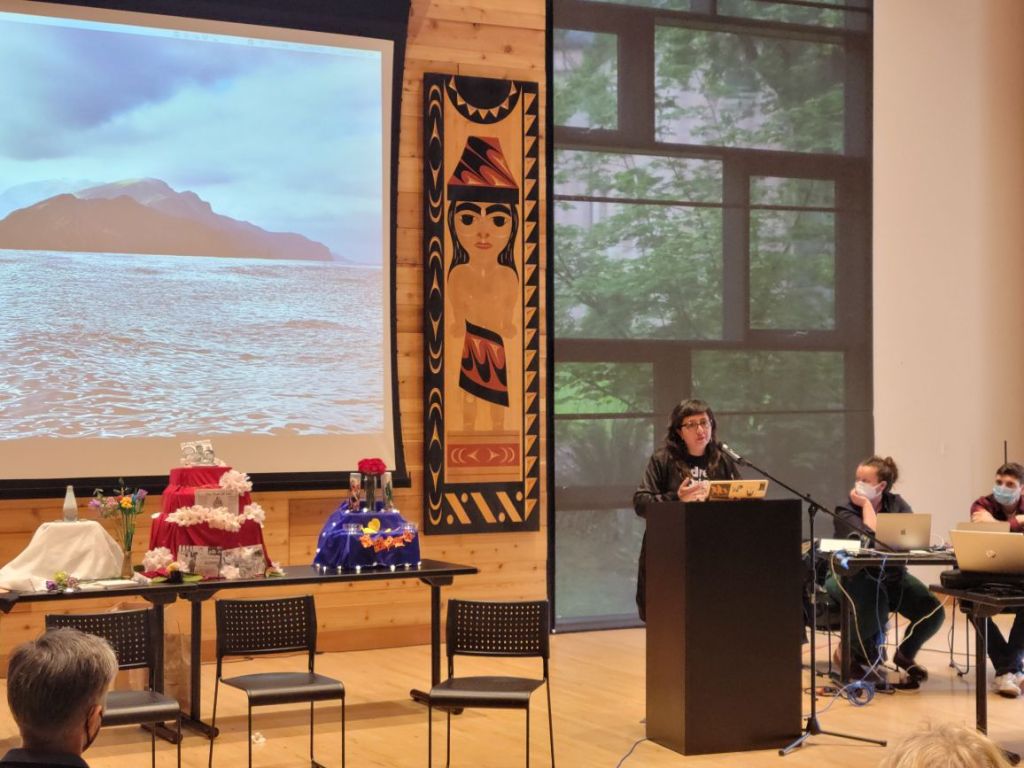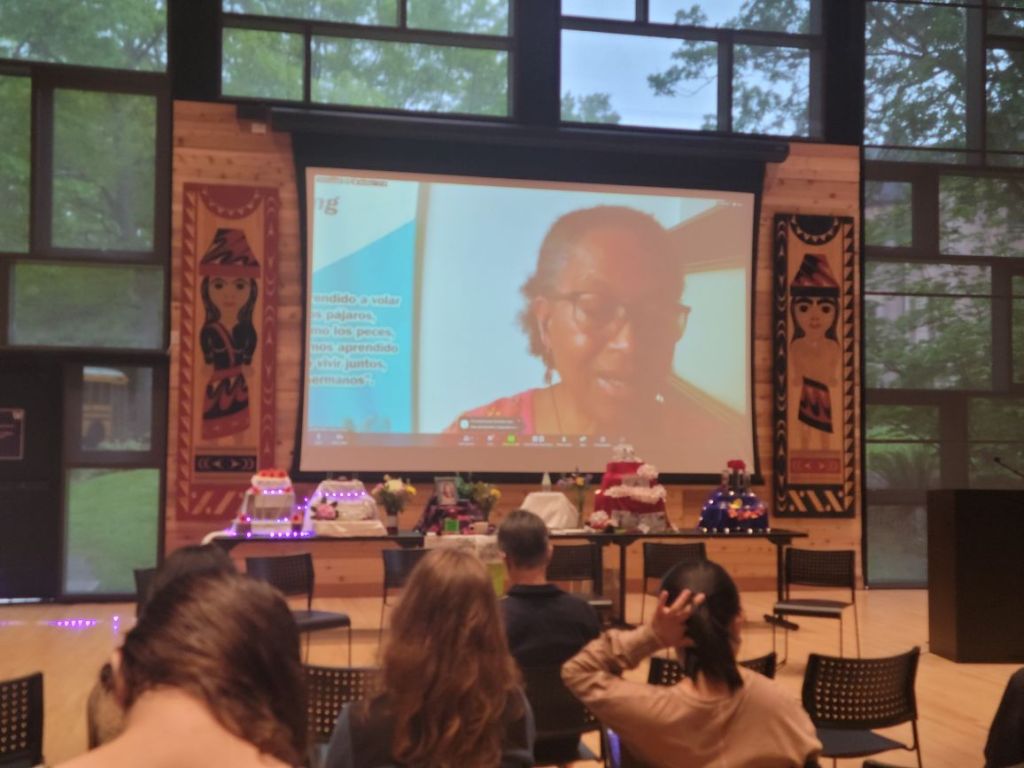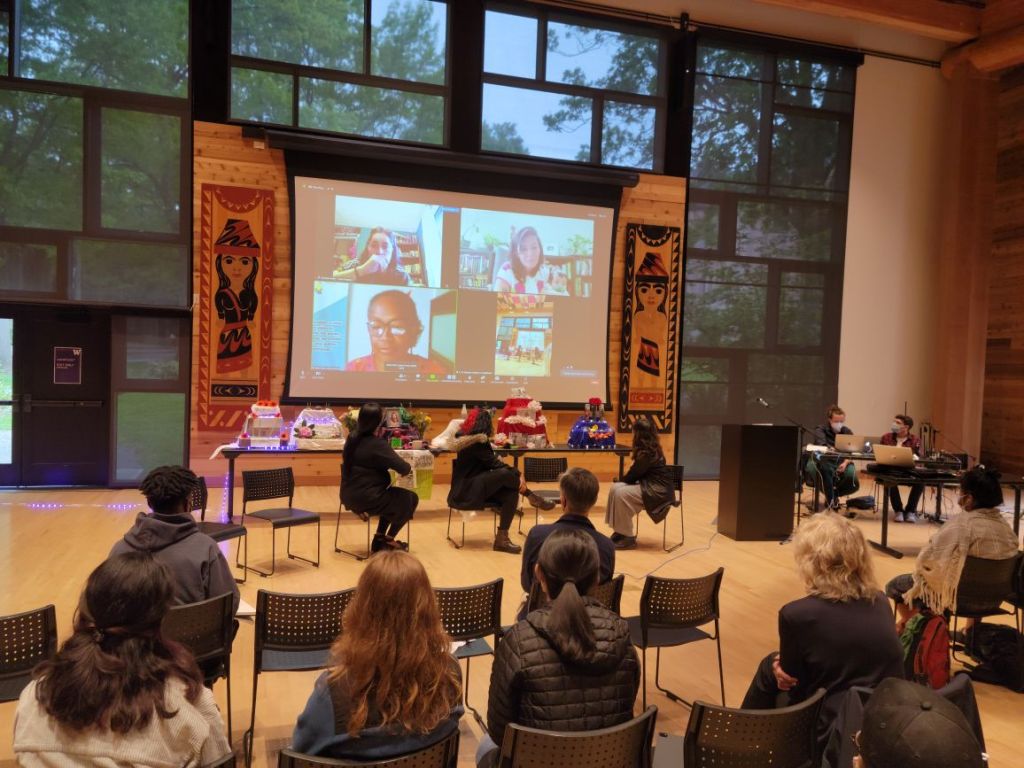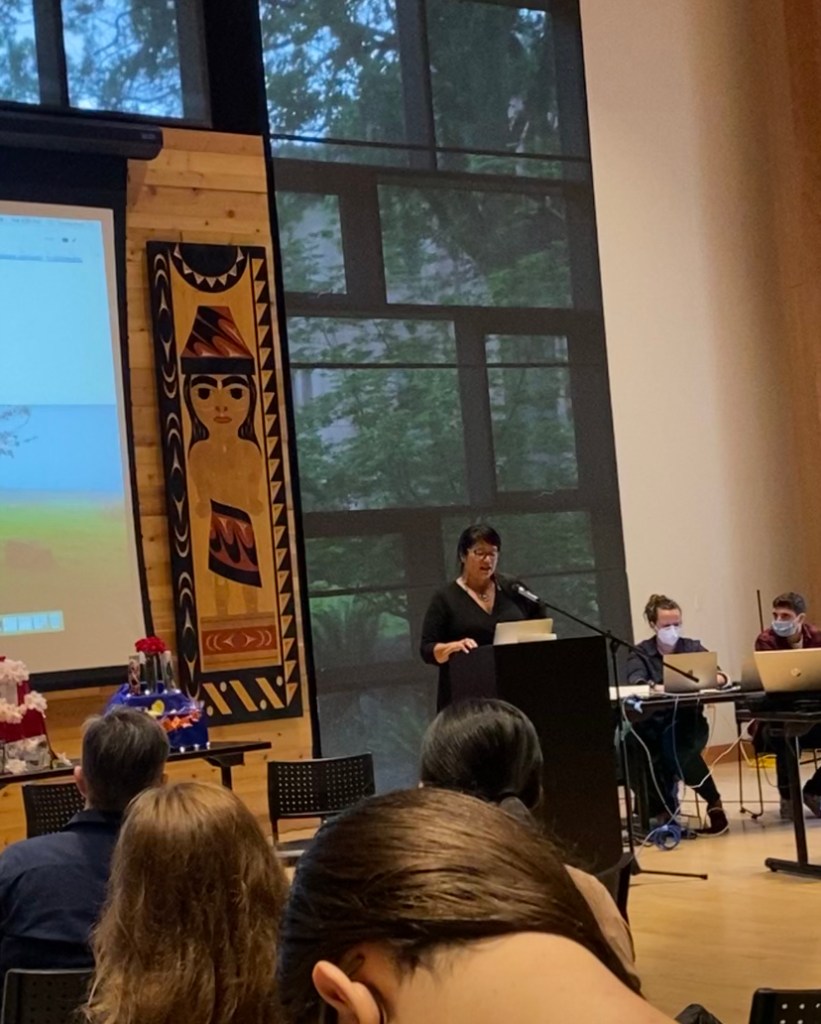Why did we choose these images?
We chose the first photo as a way to set the scene of the event and to capture the Ofrendas that our entire class contributed to the event. We believed that it showed an important connection of the classroom to real discussions. Our next three photos show the actual conversation flowing between speaker and presenters. We chose these photos because there was such a variety of conversations we created in this space. We had virtual and in person conversation, which allowed people from all locations to have a voice in the discussion. The discussions were also held in both English and Spanish, which made the conversation more inclusive. The fifth photo, which is a picture of Joselin by an information board, was chosen due to the intent to inform younger people about community history. Lastly, we included the photo of Black Mama’s preformance because in this course we have learned that activism does not just come
Interview 1:
I interviewed Maylei Blackwell, who is a professor at UCLA for Chicano and Chicana and central American studies. When asked what Plurifeminisms across Abya Yala means to Professor Blackwell, she gave this great response! “I think it’s an important event to be in dialogue with Indigeous and Afro Descendent women across Abya Yala, across what we know as the Americas. I think that the rise of colonialism, and disease, and covid, and ecological destruction kinda shows us that the Western model, or colonial model is in crisis. And women are leading the way to rejuvenate their communities and heal the Earth, so for me this is part of that discussion,” (Maylei Blackwell).
Interview 2:
Cristina Burneo Salazar, an Ecuadorian scholar and women’s rights activist, commended the event for providing a designated physical space for these conversations to take place. With so many conversations isolated within academia or within social activist circles, she notes that this event “brings together processes” and pulls those conversations out of isolation. It also provides a space for women across different cultures to come together and “exchange their ways of knowledge” (Burneo Salazar). Overall, Plurifemnisms Across Abya Yala gives a physical reality to the solidarity present within this feminism. All women have a place to discuss all struggles through this event.
#Plurifeminisms #WomenWhoRock

People: Maylei Blackwell (left), Black Mama (middle), Cristina Burneo Salazar (right), Michelle Habell-Pallan (at the podium)
Event: Plurifeminisms Across Abya Yala
Location: wǝɫǝbʔaltxʷ Intellectual House, Seattle, WA, United States
Date: May 24, 2022
Category: Building Communities
In this photo, a community of activists, scholars, and artists is convened to discuss and explore topics and issues pertaining to a wider spectrum of people.

People: Cristina Burneo Salazar
Event: Plurifeminisms Across Abya Yala
Location: wǝɫǝbʔaltxʷ Intellectual House, Seattle, WA, United States
Date: May 24, 2022
Category: Making Scenes
The ofrendas displayed are scenes that have been constructed to convey messages to the people who see it. These scenes then act as the backdrop for the community that forms around them.

People: Betty Ruth Lozano Lerma
Event: Plurifeminisms Across Abya Yala
Location: wǝɫǝbʔaltxʷ Intellectual House, Seattle, WA, United States
Date: May 24, 2022
Category: Chicanxfuturism
The proliferation of reliable video calling gives a platform to people all over the world who may have previously been unable to speak to audiences here. Our communities are no longer isolated by location.

People: Maylei Blackwell (left), Black Mama (middle), Cristina Burneo Salazar (right), Caye Cayejera (top left of zoom), Betty Ruth Lozano Lerma (bottom left of zoom)
Event: Plurifeminisms Across Abya Yala
Location: wǝɫǝbʔaltxʷ Intellectual House, Seattle, WA, United States
Date: May 24, 2022
Category: Chicanxfuturism
This photo shows a future in which people will be able to gather and build community from across the world, using new technologies like zoom.

People: Joselin
Event: Plurifeminisms Across Abya Yala
Location: wǝɫǝbʔaltxʷ Intellectual House, Seattle, WA, United States
Date: May 24, 2022
Category: Building Communities
A shared knowledge of important iconography and its history helps younger people understand the intent and context of the imagery and signs used within a community.

People: Black Mama
Event: Plurifeminisms Across Abya Yala
Location: wǝɫǝbʔaltxʷ Intellectual House, Seattle, WA, United States
Date: May 24, 2022
Category: Making Scenes
Black Mama creates a platform through her singing through which she can speak out about prominent social issues. She creates a scene which allows her to control her narrative.


